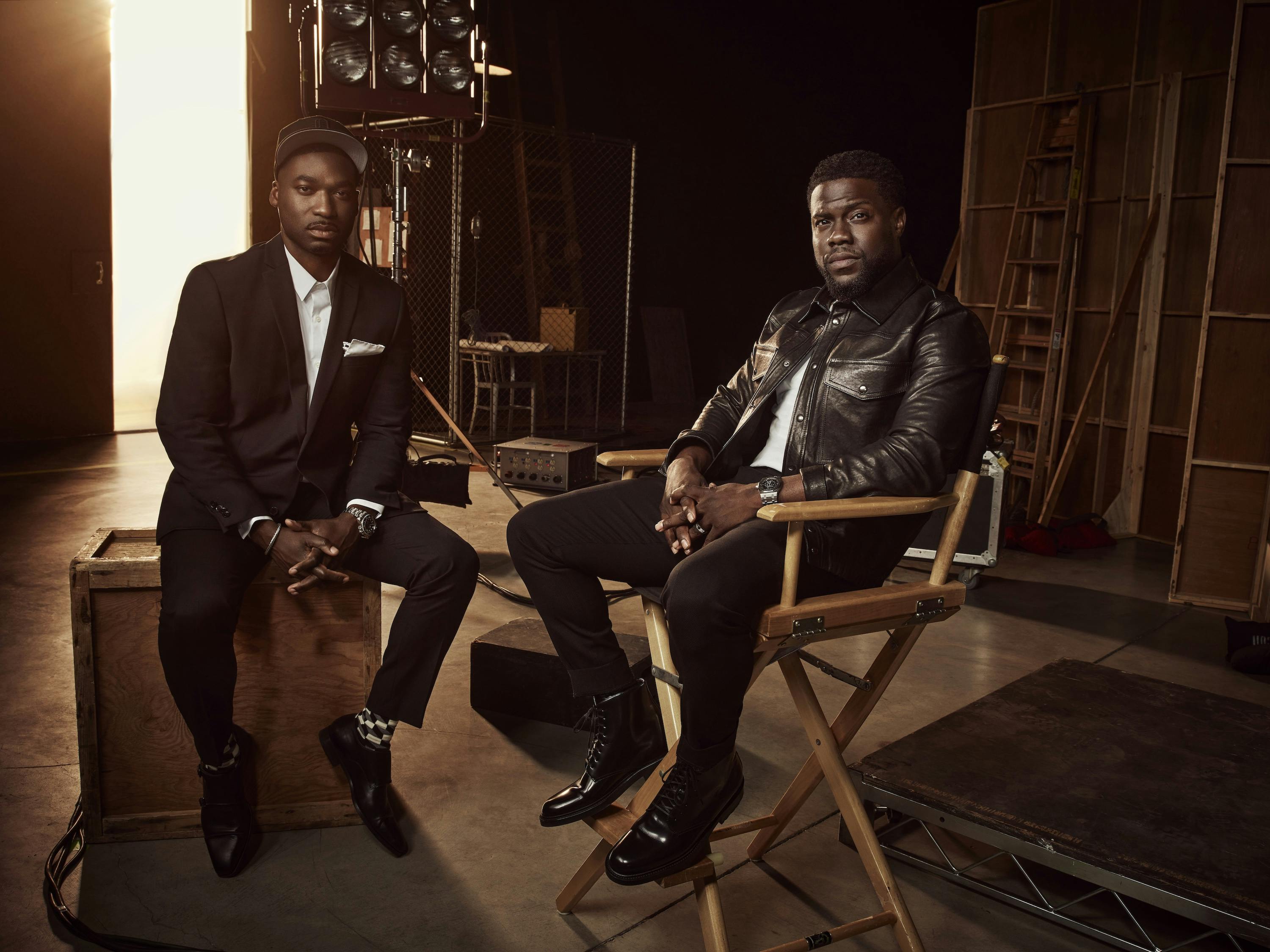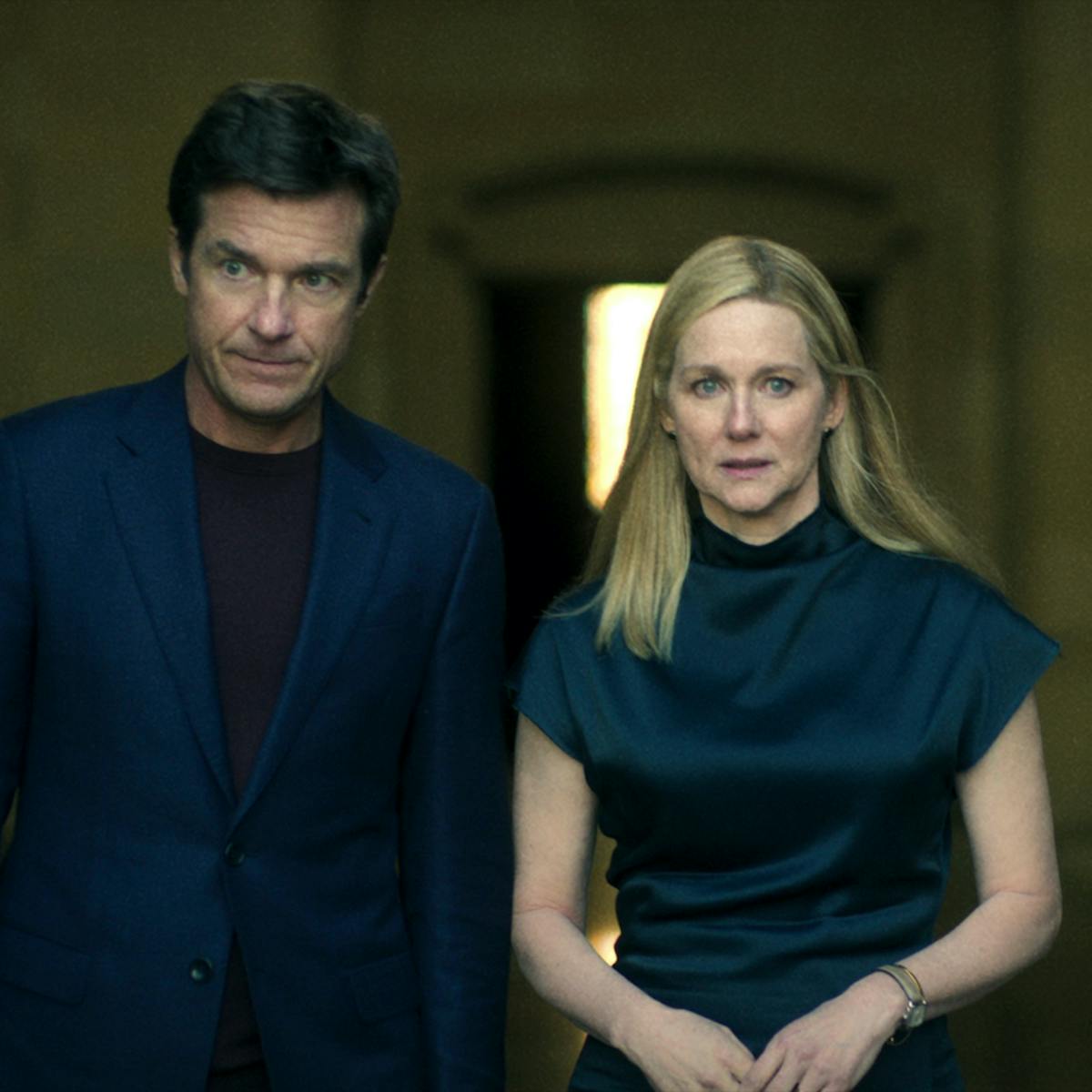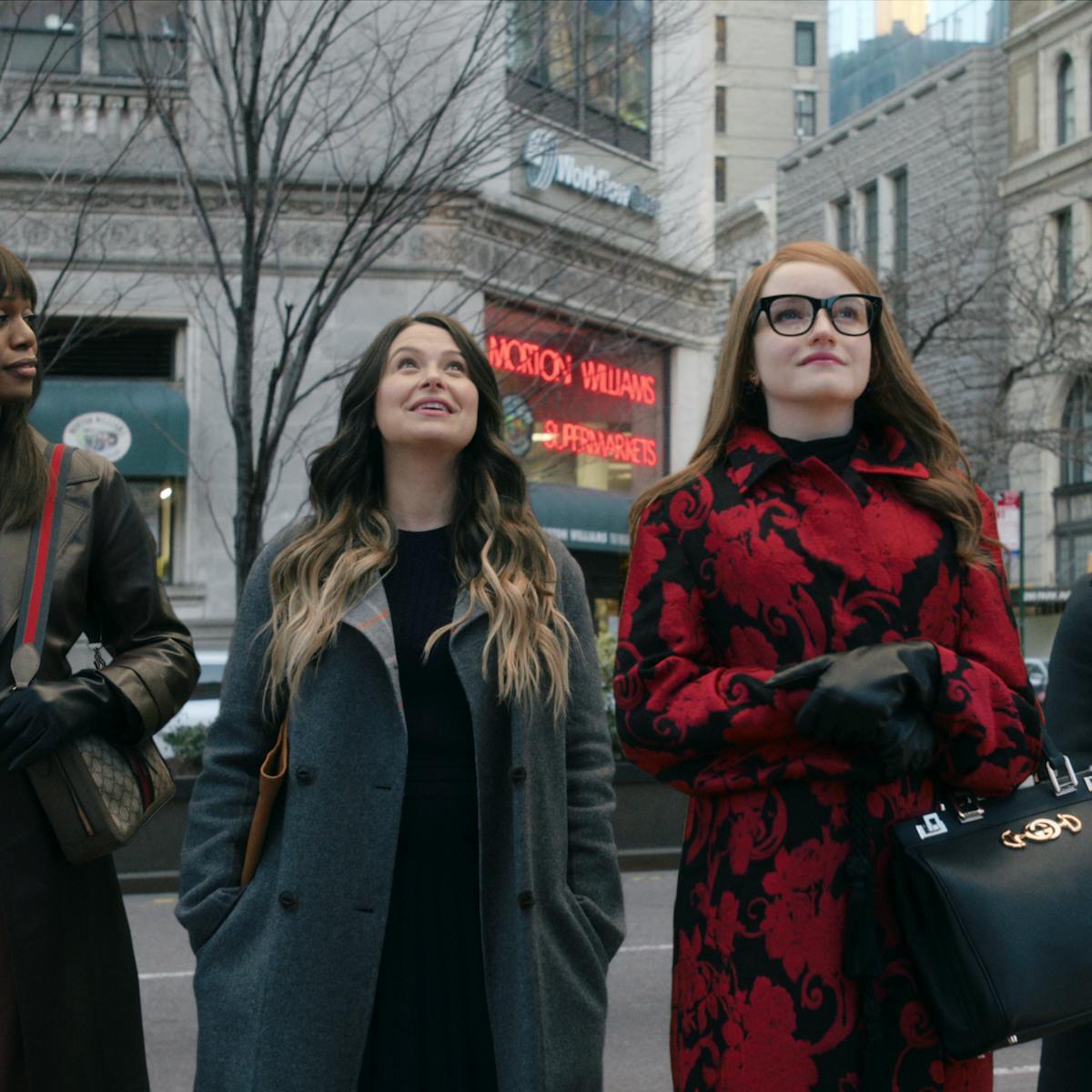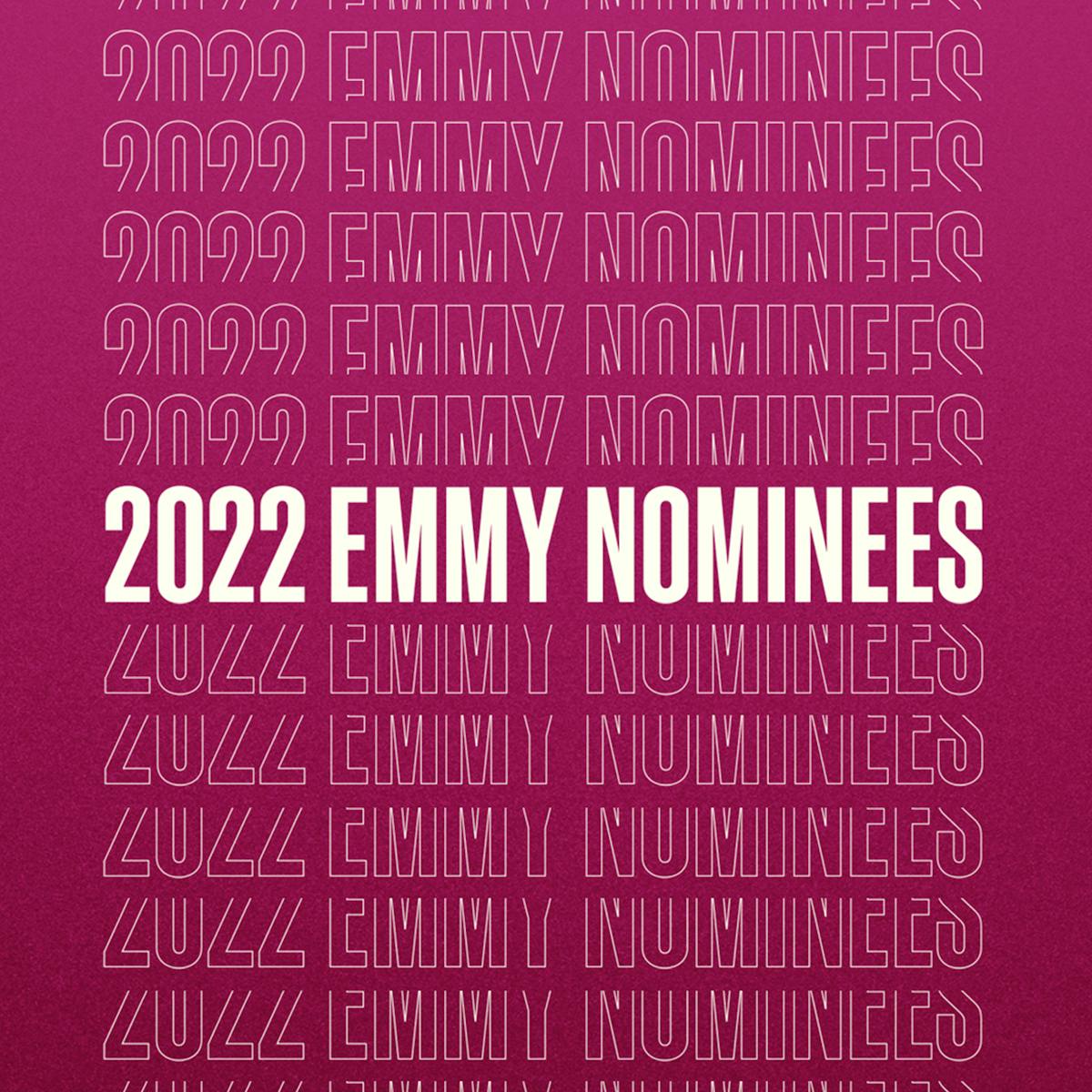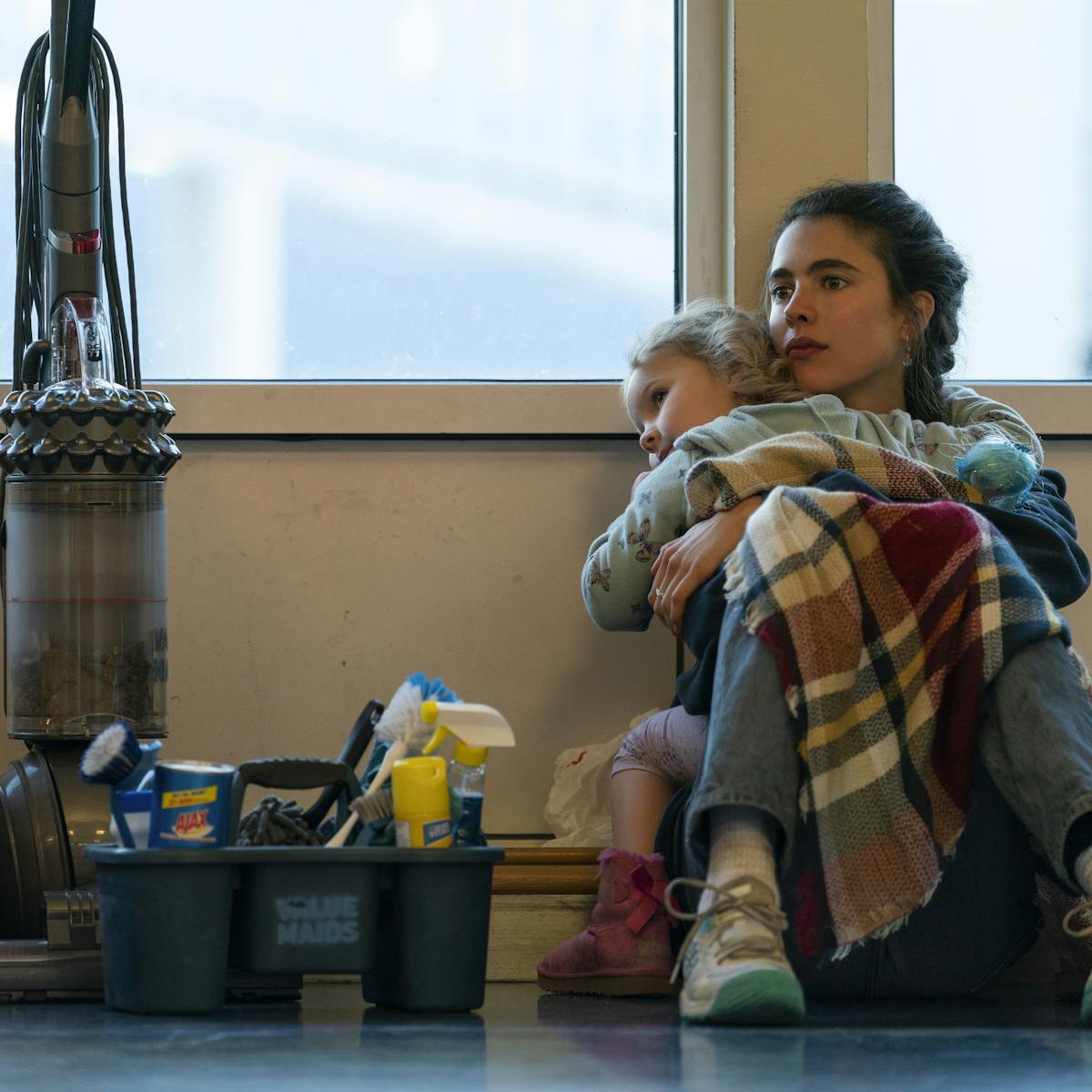The buddy comedy's star and producer, Kevin Hart and Bryan Smiley, consider HARTBEAT's future of storytelling.
Fatherhood continues to be rich comedic terrain for Kevin Hart. In his latest film, Hart turns familial gender roles on their head with his role as Sonny, a full-time dad who is immensely absorbed in Dad culture; he makes the most adorable bento lunches for his kids, volunteers at school, and micromanages his children’s activities, while his wife Maya, a pitch-perfect Regina Hall, works as a high-power architect. But this spring break, Maya’s taking the kids to stay with family and Sonny’s getting some long-deserved “me time” with his lifelong best friend — and avid party animal — Huck (Mark Wahlberg). What could go wrong?
Me Time, written and directed by legend John Hamburg (Zoolander, I Love You, Man) brings out Hart and Wahlberg’s comedic best and features a hilarious supporting cast. Along with Hall, Me Time includes appearances by Andrew Santino (Dave), Jimmy O. Yang (Silicon Valley), Ilia Isorelýs Paulino (The Sex Lives of College Girls), and Grammy Award-winning musician, Seal.
For Queue, Kevin Hart and HARTBEAT’s president of film and television Bryan Smiley shared their inspiration for Me Time and what the future of storytelling looks like for HARTBEAT productions.
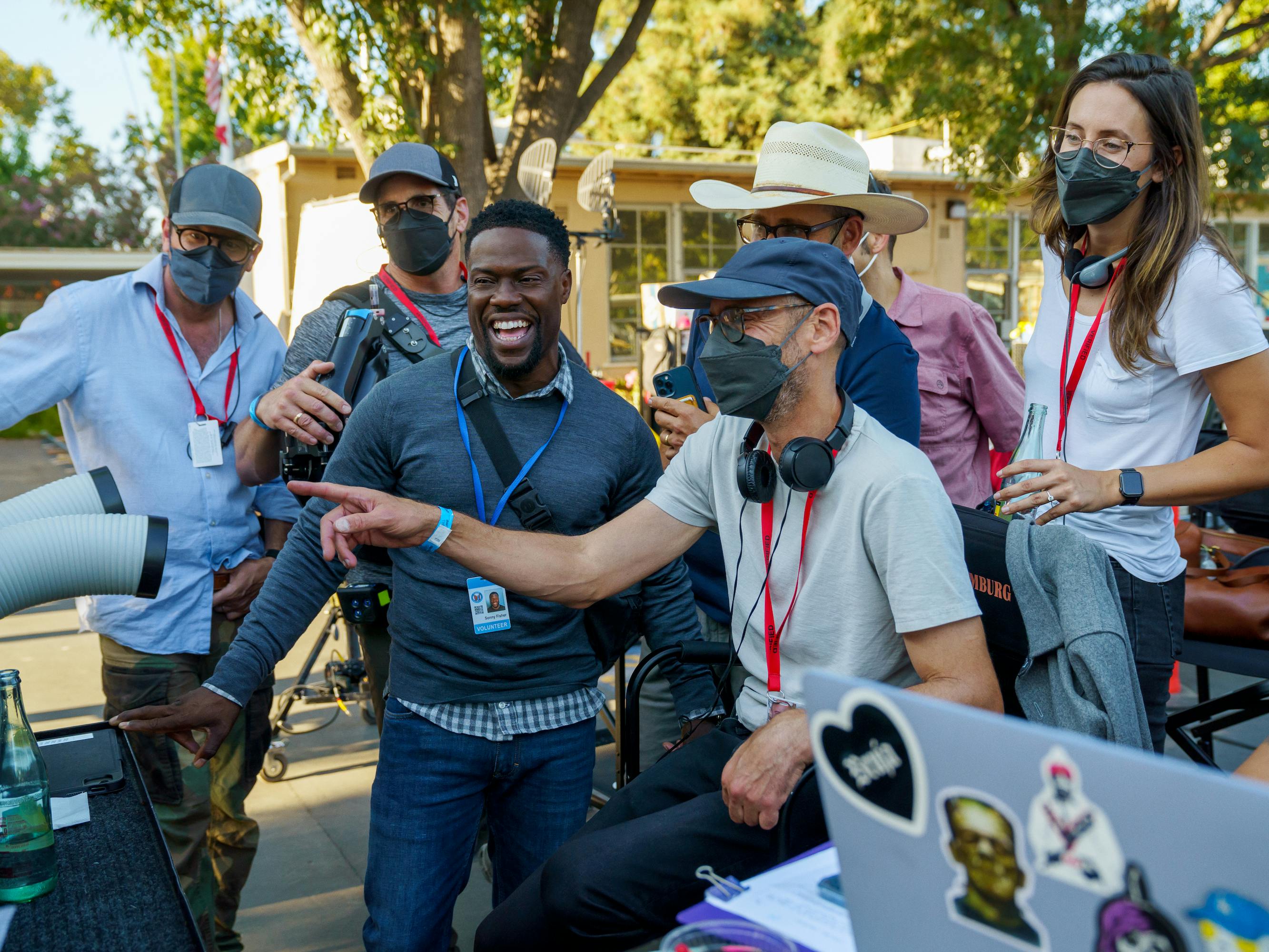
Kevin Hart and Me Time crew members
Deidre Dyer: Me Time; it’s a great buddy film. What are some of your all-time favorite buddy films or what were you thinking of in creating this film?
Bryan Smiley: My favorite is probably Trading Places. I mean, a classic, right?
Kevin Hart: That’s definitely top three. But if not Trading Places, I’m going to go Life, Eddie Murphy, Martin [Lawrence]. And I’m also going to throw in the first Rush Hour with Chris Tucker, Jackie Chan. Before that film, the idea of the international pairing [from the U.S. and China] wasn’t done on that scale. Chris Tucker at the height of his career paired with Jackie Chan was one of the most genius moves that we’ve seen in the movie business, especially with comedy attached to it. Comedy was deemed domestic, not global.
BS: John Hamburg, our writer-director, did a fantastic job of making what I thought was one of the funnier screenplays that we have seen in a very long time. It sounds crazy, but funny scripts are really, really hard to find. And John has made some of the funniest movies of our generation. So we were all in from the beginning. Netflix really leaned into the project as they’re just such incredible partners and we were excited to get on board.
KH: It’s something that John brought to us because of his life — the thing that he thought was funny is how he embraced being a parent. And through the conversation that we had jokingly, we talked about the role reversal and how you don’t see [projects] where they’re highlighting men in this particular position. And Hamburg was like, Shit, I’m one of them. And I was like, Dammit, I got a little bit of it in me too. My schedule doesn’t allow me to embrace it fully. But if it did, how dope would that be? To show the man supporting the business-driven wife, partner, backing her dream. You go, I got the kids, and doing the grounded, but funny version of what really does exist today that we rarely hear about. Hamburg tapped into it heavily. And he was able to really deliver a piece of material for Mark and myself to really sink our teeth into.
Yes, Sonny is a devoted stay-at-home dad. He’s involved, earnest. Tell me about shaping this character and also delving in a little deeper; why was it important to shift the narrative around fathers in that way?
KH: When talking about Black fathers, the conversation is kind of one way: It’s deadbeat, not around, child support, whatever. There’s a stereotype that exists, and not to say that stereotype hasn’t been shaped or molded because of some truth, but there’s so much more. With Fatherhood, the reason that movie was so attractive to me, to us at HARTBEAT, was that it was about showing a Black father in a positive light, caring, going through the trials and tribulations, but ultimately choosing love and choosing dedication and prioritization over everything else. With Sonny, there’s this world of funny, but ultimately the movie stands in a place of, I want to support my wife and I want to support her dream. The devotion behind being at school, volunteering, packing the kids’ lunches, being a part of their day-to-day; that’s the real life of some parents. So that’s what we wanted to ground. That’s what we wanted to stay true to while ultimately getting to our adventure when the world of friendship is revisited between Huck (Mark Wahlberg) and Sonny.
...What we do, [and] we believe, is super important. Taking people out of whatever they’re going through, and giving them an escape.
Bryan Smiley on comedic storytelling
Bryan, You’re known for brokering major deals, developing content with boldface talent. Tell me a bit about the films and projects that tend to catch your eye and what makes them stand apart for you.
BS: Well, we just finished a film called Lift for Netflix, which I am deeply proud of. It’s a global heist movie. And when you think about a big, four-quadrant, broad audience film, that’s what we’re looking for. We’re going to keep making amazing comedies as well. But when we are looking for new projects, it’s like, What does it mean to be a HARTBEAT project and follow this journey we’ve been on? I’m so excited about this one. F. Gary Gray (Friday, Straight Outta Compton) was our director.
KH: When you look at Me Time, this is a representation of what HARTBEAT does, what we can do, but the goal is to progress and keep progressing. We want big comedies. We want to laugh. If you can deliver that on a high scale, well that’s a big deal. And right now that’s a priority underneath the umbrella of HARTBEAT. And what Bryan is speaking on, when you talk about those four-quadrant ideas, well, How do we show that we can do this, that, plus more? How do we continue to show that we’re real players in this town? We consider Netflix a great partner — not just a studio that gets it, but one that supports it. They support the vision of today and tomorrow. So we can’t be in a better situation right now.
To that point, how would you describe the work that you’re curating and creating on HARTBEAT, or what would you want audiences to continue to come to you for?
KH: I’ll give the unprofessional, let Bryan go professional. I’ll say, Dope as fuck.
BS: I think we pride ourselves on really accessible characters and stories, especially coming out of a really crazy time in the world for us — the root is that they feel something from a HARTBEAT movie. And that’s very important because what we do, we believe, is super important. Taking people out of whatever they’re going through, and giving them an escape.
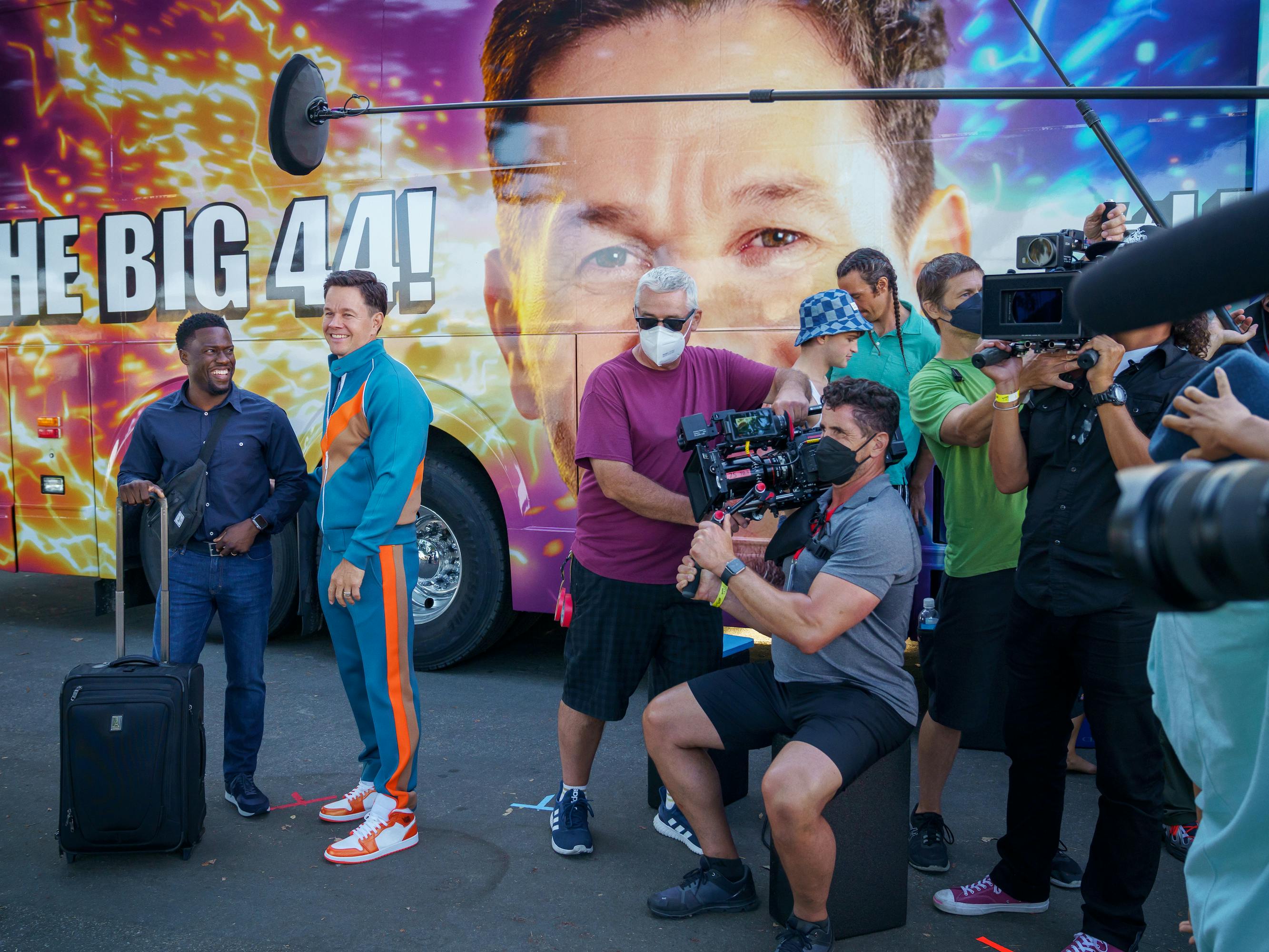
Kevin Hart and Mark Wahlberg
What was it like working with Mark Wahlberg in a comedic capacity? Was everything scripted? Were you able to lean into improv and playful banter on takes?
KH: I think people forget how good Mark Wahlberg is at comedy. Right? When you think about Ted, well, Ted is the biggest R-rated comedy ever. I think it’s that, and maybe The Hangover. Think about The Other Guys, Daddy’s Home. He doesn’t really miss in this space and he’s been able to really spread himself out on such an amazing level, in the world of movies. In comedy, he’s a guy that can either go straight man, or he can go wild man. But all from the space of grounded, funny. And that’s how you get great comedy. So having him as a costar, it elevated the project. He made the movie better.
He’s professional. He shows up to work every day on time, knows his lines. He’s a guy that understands how movies are made and understands what it takes for a project to come out great at the end of the day. And it comes from commitment. It comes from good energy on set. And we had that every single day. And I can only hope that we do more stuff down the line.
What’s coming down the road; what’s next for HARTBEAT? Are there any titles that you can share with us or is it too soon?
KH: I think Lift is probably the most important one. It’s such a big movie. F. Gary Gray is a legend . . . the fact that I can say, in my career, I got the team up with F. and figure out the way to present the new version of myself, following what we did in True Story, Fatherhood, The Upside. Let me attach myself to the people that can continue to push me to new limits, new heights, and the association of F. Gary Gray did that, plus so much more. And this is one that I think is going to blow people away. It’s a heist movie like you haven’t seen. And it’s me in some acting shoes that you haven’t seen me wear.
Last question, just something that’s been on my mind: Why Seal, whose idea was that?
KH: First of all, you say it like Seal ain’t Seal, superstar. Seal is Seal, and John Hamburg is a massive Seal fan. I know Seal, and I’m familiar with some of his hits, but after meeting and working with Seal, it really drew me to his talent more. Spending that day with him on set, singing with him, and just seeing how good of a guy he was, it was a dope moment for me. I’m glad that this happened because he is who he is for a reason: The guy’s talented, he’s a legend. And he elevated that project in a major way.
